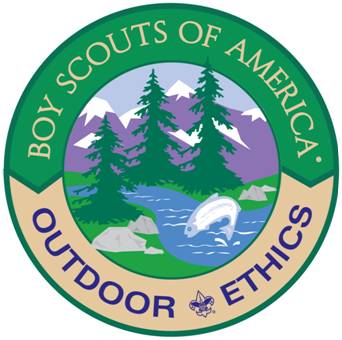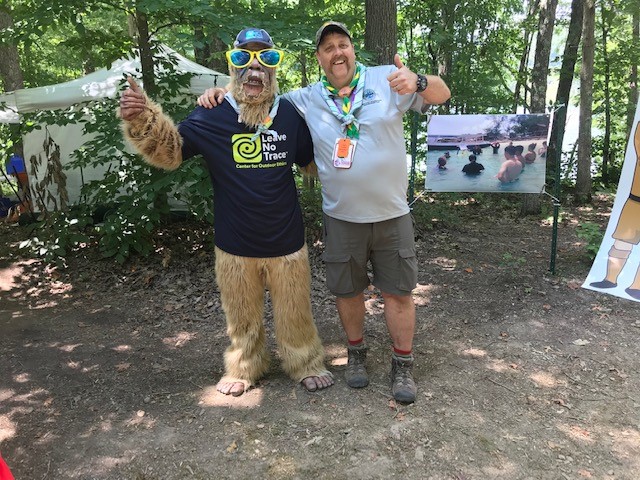Welcome to our Support Portal. Search for answers using the search box below, or create a support ticket if you cannot find your answer.
Popular searches: KB Main Page, FAQs, Widgets
Outdoor Ethics & Conservation
5 out of 5 stars
1 rating
| 5 Stars | 100% | |
| 4 Stars | 0% | |
| 3 Stars | 0% | |
| 2 Stars | 0% | |
| 1 Stars | 0% |


Graham Twaddell
Committee Chair
Grand Canyon Council
gtwaddellaz@gmail.com
Outdoor Ethics and Leave No Trace are key components of all core BSA outdoor programs. Consider the combined effects of millions of outdoor visitors. One poorly located campsite or campfire may have little significance, but thousands of such instances seriously degrade the outdoor experience for all. Leaving no trace is everyone’s responsibility.
Help protect the front and backcountry by remembering that while you are there, you are a visitor. When you visit a friend, you take care to leave your friend’s home just as you found it. You would never think of trampling garden flowers, chopping down trees in the yard, putting soap in the drinking water, or marking your name on the living room wall. When you visit the front and backcountry, the same courtesies apply. Leave everything just as you found it. Hiking and camping without a trace are signs of an expert outdoorsman, and of a Scout or Scouter who cares for the environment.
A Leave No Trace Trainer course provides more advanced awareness and skills training, and develop youth and adults capable of effectively teaching these important outdoor skills and ethics. A unit with an active Leave No Trace Trainer will be better equipped to travel lightly on the land.
A 16-hour, overnight, Leave No Trace Trainer course trains adults and youth ages 14 and up to serve as Leave No Trace Trainers. It is recommended training for the Outdoor Ethics Guide troop junior leadership position.
Grand Canyon Council’s Outdoor Ethics Team goal is for every unit, within every district, to have some level of formal Leave No Trace training. By becoming a Leave No Trace Trainer, you will learn the skills and gain the confidence to host Leave No Trace awareness workshops for you unit.
Training Schedule
Grand Canyon Council schedules Leave No trace Trainer Courses the third weekend of March every year! The Catalina Council in Tucson hosts October trainings each year; either Council’s training will provide you what you need to be certified!
Click here to review available Outdoor Ethics events.
- Saturday, March 16-17, 2024
Nature Activities for Kids
Scouts and Scouters – Now is the perfect time to earn the Scouts BSA Outdoor Ethics Award!
The requirements are as follows:
- Recite from memory and explain the meaning of the Outdoor Code.
- Watch the National Park Service Leave No Trace video.
 It’s on the right side of the page.
It’s on the right side of the page. - Complete the Leave No Trace online course
 . Print the certificate.
. Print the certificate. - Complete the Tread Lightly! online course
 . Print the certificate.
. Print the certificate. - Participate in an outdoor ethics course, workshop, or training activity facilitated by a person who has completed the BSA outdoor ethics orientation course or is a BSA outdoor ethics trainer or master.
Complete requirements #1-4, and then have a parent or unit leader contact Graham Twaddell, Grand Canyon Council’s Outdoor Ethics Advocate, for information on an at home training activity that satisfies requirement #5.
Additionally, LNT.org has prepared a variety of nature activities for youth to learn
Conservation

Since 1910, conservation and environmental studies have been an integral part of the Boy Scouts of America. Scouts have rendered distinguished public service by helping to conserve wildlife, energy, forests, soil, and water. Past generations of Scouts have been widely recognized for undertaking conservation Good Turn action projects in their local communities. Through environmental explorations, Cub Scouts, Scouts BSA, Venturers, and Sea Scouts visit the outdoors and discover the natural world around them. Many natural resource careers are born in Scouting.
Since its first appearance in the 1955 printing of the Boy Scout Handbook, the Outdoor Code has reminded Scouts to be conservation-minded.
The Outdoor Code
As an American, I will do my best to—
Be clean in my outdoor manners.
Be careful with fire.
Be considerate in the outdoors.
Be conservation-minded.
BSA Distinguished Conservation Service Award
For more than a century, the BSA has encouraged and honored conservation work with an award that recognizes youth, adults and organizations who have demonstrated tremendous effort and commitment to the environment. This award, which until now had been known as the William T. Hornaday Award, is being discontinued, and the new BSA Distinguished Conservation Service Award is being introduced to underscore the importance of encouraging everyone to participate in environmental stewardship.
The BSA Distinguished Conservation Service Award will continue to recognize the conservation efforts of Scouts, Venturers, Sea Scouts, adult volunteers, and other individuals, corporations, and institutions that contribute significantly to natural resource conservation and environmental protection. It has been streamlined and modernized to build on the extraordinary contributions made by all the dedicated award recipients to date, and we believe the changes will help make these important efforts even more accessible for today’s members.
Learn more about the BSA Distinguished Conservation Service Award Program.
BSA Distinguished Conservation Service Award Brochure PDF
Photo Gallery
5 out of 5 stars
1 rating
| 5 Stars | 100% | |
| 4 Stars | 0% | |
| 3 Stars | 0% | |
| 2 Stars | 0% | |
| 1 Stars | 0% |
